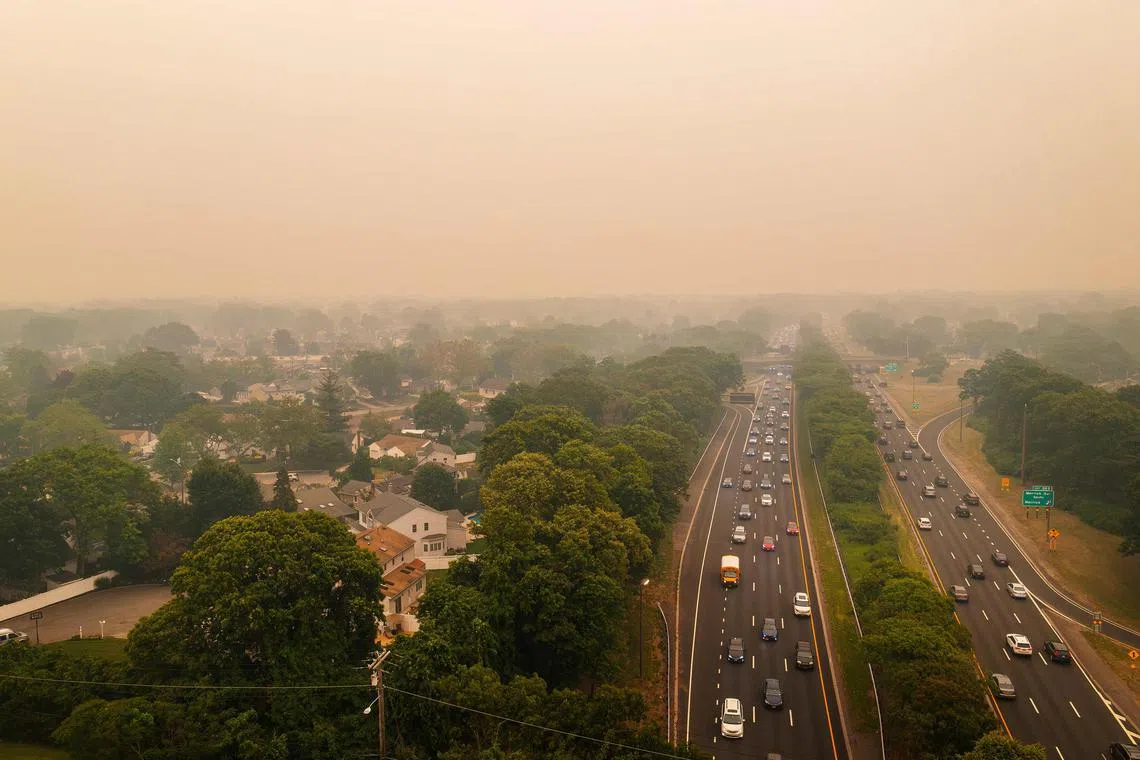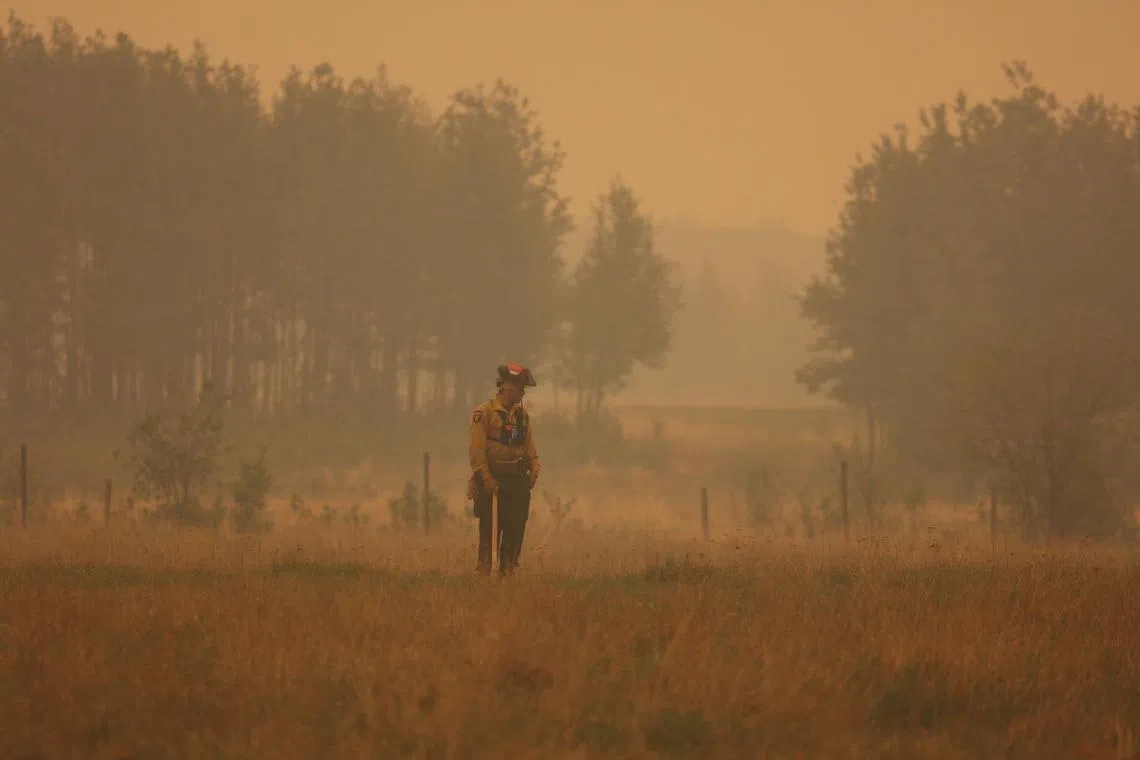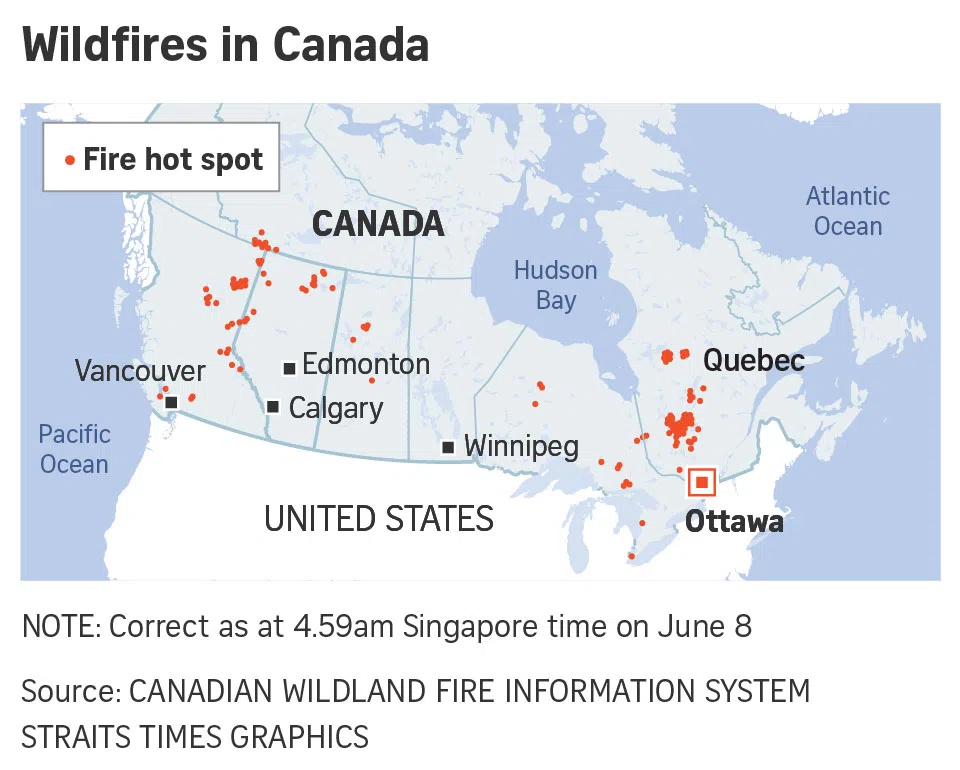Canada awaits wildfire help, as thousands more may flee
Sign up now: Get ST's newsletters delivered to your inbox

An aerial view of the Southern State Parkway enveloped in a dense haze caused by wildfires in Canada on June 7, 2023.
PHOTO: AFP
MONTREAL - Canada’s Quebec province, hit hard by unprecedented wildfires
This comes as a smoky yellow haze generated by the wildfires hovered over a large swathe of the United States on Thursday, threatening to make breathing difficult and disrupting air travel for millions of people for a second day.
The US National Weather Service extended air quality alerts for another day for the East Coast from New England to South Carolina, as well as parts of the Midwest, including Ohio, Indiana and Michigan.
Advised to stay indoors, residents of New York, Washington and other big cities donned masks and scrambled to buy air purifiers to protect themselves from the yellow haze that arrived in the region on Tuesday afternoon.
Conditions appeared to worsen in the Washington area on Thursday, with a smoky residue more visible and an acrid smell of burning wood more noticeable in the early morning.
“This problem is likely to continue or worsen through Friday,” Washington Mayor Muriel Bowser said in a tweet.
After major flare-ups in Canada’s west in May, firefighting efforts recently shifted to Nova Scotia on the Atlantic coast, before this week moving to Quebec, which is now the epicentre of the crisis
The province, which is struggling to put out 150 fires, most of them listed as out of control, is hoping extra personnel, along with rain
But Quebec Premier Francois Legault lamented that no significant rain is forecast before Monday evening, and worried about a shortage of resources.
“With the current hands, we can fight about 40 fires at a time,” he told a news conference.

A firefighter at one of scores of wildfires burning across multiple Canadian provinces in Sturgeon Lake Cree Nation, Alberta, on June 8.
PHOTO: EPA-EFE
Quebec has deployed hundreds of firefighters, with help expected from France and the United States in the coming days.
In Ottawa, Prime Minister Justin Trudeau said this has been “the worst wildfire season we’ve ever had right across the country”.
Canada has been hit repeatedly by extreme weather
3.8 million ha scorched
As at Wednesday, about 3.8 million ha had been scorched and more than 20,000 people remained displaced across Canada, but that figure was expected to rise as thousands more in Quebec were ordered to leave their homes by the end of the day.
Among them was Ms Nancy Desaulniers, who said in a Facebook post that she, her partner and their two dogs fled their home in the town of Chibougamau at 2am local time on Wednesday.
“We decided to leave by boat, which allowed us to bring important belongings,” she said.
“It’s very stressful,” Mr Daniel Harvey, a resident of Chapais, a neighbouring town that is preparing to be evacuated, told La Presse newspaper.
He said he gathered up “important papers, hard drives, photos. We don’t know what will happen, so we have to act as if” everything could burn.
Mr Legault noted that evacuation orders are likely to stay in place until at least early next week.
The French-speaking Canadian province has recorded 438 wildfires since the beginning of the year, more than double the average over the past decade for the same period.
Smoke from the Quebec fires has spread far and wide, choking the capital Ottawa, and prompting air quality alerts in Toronto and in several US cities, including New York, where the Manhattan skyline was barely visible



